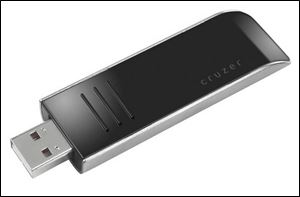
BGSU professor can't find flash drive with IDs
6/28/2007
Albrecht
Handout; not Blade photo

Albrecht
BOWLING GREEN - Information about 1,800 current and former Bowling Green State University students is on a backup computer storage device that has been lost by accounting professor W. David Albrecht, university officials said yesterday.
The computer flash drive contained Social Security numbers for 199 students who enrolled in Mr. Albrecht's classes in 1992. The following year, the university switched from Social Security numbers to unique university identification numbers.
Mr. Albrecht's flash drive contained those ID numbers, names, and grades for about 1,600 other students since 1993.
After extensive searching, the professor reported to university officials on May 30 that he lost the flash drive, Teri Sharp, a BGSU spokesman, said.
The university is now notifying Mr. Albrecht's students.
"Dr. Albrecht used the device to store information about his courses and he lost it," Bruce Petryshak, the college's chief in-formation officer, said. "We want to do whatever we can to protect these individuals from having the information used illegally."
Letters are being sent from the university to all Mr. Albrecht's students since 1992, encouraging affected students to take precautions to avoid identity theft and fraud.
A notification has been posted on the university Web site asking for students who might have taken Mr. Albrecht's class to contact the college of business administration.

Flash drives are small, lightweight memory data storage devices that typically are faster and hold more data than floppy disks. The flash drive consists of a small printed circuit board in a plastic or metal casing, which allows a user to carry the drive around in something as small as a pocket. Most flash drives use a standard connection and can be hooked up to a personal computer, thus enabling a user to access any data.
Kim McBroom, the university's associate vice president of marketing and communications, said the university does not believe the flash drive was stolen. "We don't know that anybody else has picked it up," she said. "It's not a security breach - there's no hacking or anything like that involved."
Jaimee Green, 22, took managerial accounting from Mr. Albrecht last spring and learned about the missing flash drive yesterday when she went to the BGSU Web site.
"Right away I thought, 'Oh, no!'•" said Miss Green, a senior in finance from Maumee.
"But then as I was reading, it said it wasn't stolen, it was lost. I really hope that maybe Dr. Albrecht will find it soon. I guess I'm just going to cross my fingers. It's nice to know we can call the college of business and find out if we're in any danger."
All affected students are encouraged to file a fraud alert with credit bureaus. The university also is offering to buy a year's worth of identity-theft prevention services from LifeLockSM for students whose Social Security numbers were on the flash drive.
- Maggie Reid
and Mark Zaborney